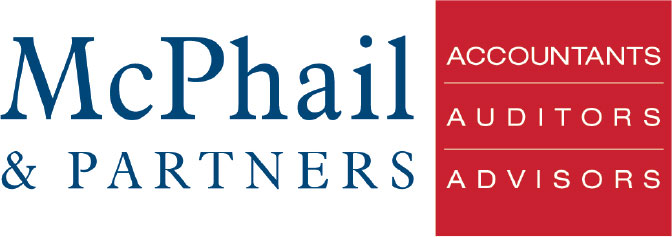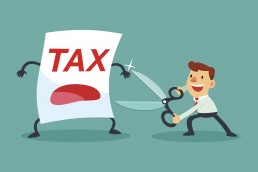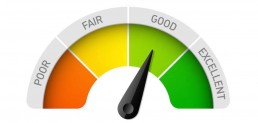ATO Backs Down From Controversial Time Limit Ruling
In 2018, the ATO issued a controversial draft ruling which took a very strict stance on the four-year time limit for claiming input tax credits and fuel tax credits. The ruling had been used by the ATO to deny input tax credits and fuel tax credits where the Commissioner of Taxation made a decision outside the four-year period on an objection or amendment request, even where the objection or request was made within the period. However, a recent observation by a judge ruling on a related matter has put the ATO’s strict stance in doubt and as a result the ruling (Draft Miscellaneous Taxation Ruling MT 2018/D1) has been withdrawn.
Where the Commissioner makes a decision on an objection or requests for amendment in relation to input tax credits and/or fuel tax credits outside the four-year period but the initial objection or amendment request was lodged within the time limit, the taxpayer will no longer be automatically denied the credits in situations where the decision is in the taxpayer’s favour.
As a result, any taxpayer that the draft ruling has affected is encouraged to contact the ATO.
ATO Grants Automatic Deferrals In Bushfire Support
From the ATO website:
Devastating bushfires have been burning across large parts of Australia since late 2019.
If you’ve been impacted by these bushfires, we understand that your priority is on your family and community at this time. We'll help you sort out your tax affairs later.
If you live in one of the identified impacted postcodes, we'll automatically defer any lodgments or payments you have due. You, or your agent, don't need to apply for a deferral – it will be automatically applied. Income tax, activity statement, SMSF and FBT lodgments, and their associated payments, will be deferred until 28 May 2020.
If you've been affected by this disaster but your postcode is not in the current postcodes list, don't worry. You can phone our Emergency Support Infoline on 1800 806 218 for help.
Find out about:
Super Guarantee Opt-Out For High Income Earners
 Under the superannuation guarantee framework, employers are required to contribute a minimum percentage (currently 9.5%) of their employees’ ordinary time earnings into superannuation. Employers that fail to do so will be liable for a penalty called the superannuation guarantee charge, payable to the ATO. If you’re a high-income earner with multiple employers, this requirement has the very real chance of pushing you over the concessional contributions cap of $25,000.
Under the superannuation guarantee framework, employers are required to contribute a minimum percentage (currently 9.5%) of their employees’ ordinary time earnings into superannuation. Employers that fail to do so will be liable for a penalty called the superannuation guarantee charge, payable to the ATO. If you’re a high-income earner with multiple employers, this requirement has the very real chance of pushing you over the concessional contributions cap of $25,000.
To avoid this unintended consequence, laws have recently been passed so that eligible high-income earners with multiple employers can opt out of the super guarantee regime. From 1 January 2020, employees with more than one employer who expect their combined employers’ contributions to exceed the concessional contributions cap can apply for an “employer shortfall exemption certificate” with the ATO.
Tip: It’s a good idea to speak to your employers before deciding to apply for an exemption certificate, as it may impact relevant awards or your workplace agreements.
Tax Relief For Drought-Stricken Farmers
With drought sweeping across the country, farmers are being offered access to concessional loans, grants and special allowances to help ease the immediate financial burden. While it is difficult to predict when the drought will break, for those who are in the process of navigating their way out of immediate financial strain, there are ways to future proof your farm or primary production business by taking advantage of various tax concessions.

Some of the immediate assistance measures include concessional loans and the farm household allowance, through which lump sum payments of up to $12,000 can be paid to eligible farm households.
The allowance can also be in the form of fortnightly payments for a maximum period of four cumulative years at the same rate as the Newstart allowance. This allowance may be available to both the farmer and their partner, provided certain conditions are met. An activity supplement of up to $4,000 to pay for study, training or professional financial advice may also be available to eligible households.
In addition to the immediate assistance, primary producers can obtain ongoing benefits of various tax concessions, including the instant asset write-off, immediate deductions for fodder storage assets, and income averaging to assist with cash flow.
Tip: If you’re experiencing hardship due to drought, we can contact the ATO on your behalf or assist with your application for farm household allowance to ease the immediate financial burden.
Less Tax For Some Working Holiday Makers?
The working holiday tax rate (commonly known as the “backpacker tax”) has generally applied from 1 January 2017 to individuals who have working holiday or work and holiday visas. In essence, the first $37,000 of “working holiday taxable income” is taxed at 15%, and then the balance is taxed at the standard rates applicable to residents.
Thus, working holiday makers are taxed at a higher rate on their first $37,000 than residents, because the holiday makers don’t get the benefit of the Australian tax-free threshold ($18,200 for 2019–2020).
A recent Federal Court case centred on a British citizen who lived in Australia for almost two years. During most of that time she lived in the same share house accommodation in Sydney, and only left for short stints to travel to other areas. Essentially, the case came down to whether or not she was a resident of Australia and if so, whether the non-discrimination clause in the Australia–United Kingdom double taxation agreement prevented her from being taxed at the higher “backpacker” rate. The Federal Court found that she was an Australian resident for tax purposes, and she should not be taxed at the higher rate.
Some have seen this decision as a win for all working holiday makers, but it’s likely to have a fairly narrow application. Coupled with the ATO still considering an appeal, this area of law is far from settled.
Tip: If you’re unsure whether this decision affects you, we can help you work out whether you’re a tax resident and may be eligible to pay less tax on your working holiday income.
Non-Commercial Losses: Do The Rules Apply To You?
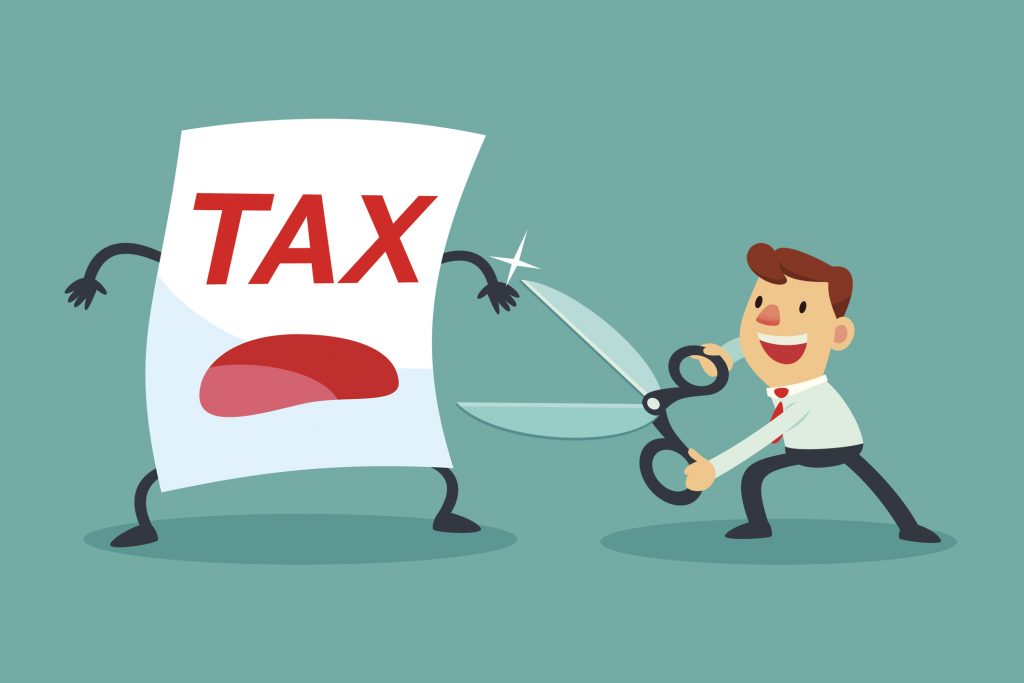
If you have a business in addition to your main employment, the non-commercial loss rules could apply to you, which may prevent you from deducting your business losses against your other income.
Depending on your business activity, as long as you satisfy certain conditions your business will not be subject to the non-commercial loss rules. If your business doesn’t satisfy these conditions, don’t worry – you can also apply to the ATO for an exemption under certain circumstances.
A “non-commercial” business activity in this context is any business where the deductions exceed the assessable income in any particular year.
If you’re a primary producer or a professional artist and your income from other sources unrelated to the business is less than $40,000, the non-commercial loss rules will not apply to you. You will be able to deduct any losses from the business against your other income, but you should be aware of the $40,000 threshold, which may change from year to year based on your personal circumstances.
Tip: If you get the bulk of your income from being an employee and run a business on the side, we can help you figure out if you’re subject to the non-commercial loss rules. We can also help make a formal request to the ATO to allow you an exemption from the rules.
Crowdfunding: Is It Income?
Crowdfunding has fast become a go-to strategy for people in need of large amounts of money quickly, but is the money raised considered to be income and therefore taxable?
Crowdfunding is when an individual or business (the promoter) uploads a description of a campaign (eg to fund an activity, a project or a new invention) along with the amount they want to raise to a platform like Kickstarter, GoFundMe, Indiegogo or Pozible.
Other people online (the contributors) can then choose to support the campaign or cause by pledging money.

Many campaigns are donation-based. This is where contributors pledge an amount of money without receiving anything in return. If you’re a contributor in this case, you won’t be able to deduct an amount contributed in a crowdfunding campaign as a “donation” in your Australian tax return unless the cause you’ve donated to is an endorsed or legislated deductible gift recipient (DGR).
Other campaigns can be rewards-based. In these cases, the promoter provides a reward, such as goods, services or rights, to contributors in return for their payments. For example, differing levels of campaign-related merchandise may be available. Usually, your acquisition of goods or services for making a contribution means the payment is considered private in nature and not deductible.
As the promoter of a campaign (either donation-based or rewards-based), whether the money you receive is considered to be taxable depends on the circumstances. Generally, if the campaign is related to running/furthering your business or is a profit-making plan, then any money received would be classed as income.
Tip: If you’re thinking of starting a crowdfunding campaign or have already had success with one, we can help you deal with all the tax consequences, so you can concentrate on making your business or project a success.
ATO Debts May Affect Your Credit Rating
Businesses with tax debts need to be aware that the ATO will now be able to disclose the details of their tax debts to credit ratings agencies, which could potentially affect the ability of the business to obtain finance or refinance existing debt.
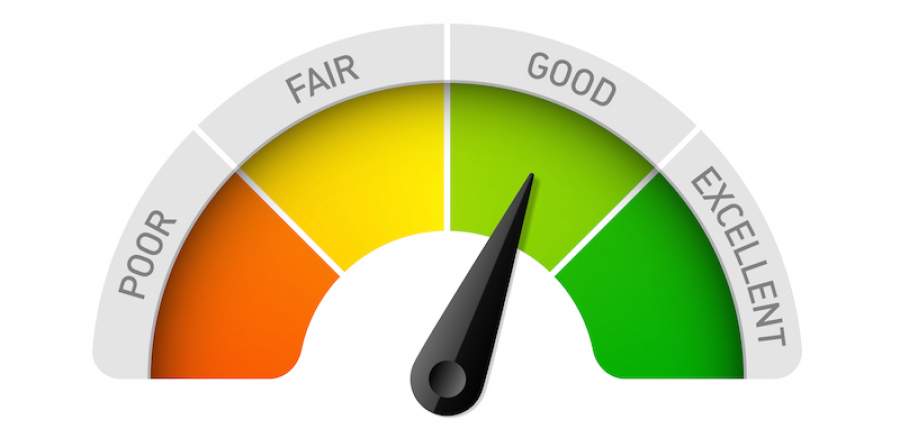 Generally, only businesses with an ABN and debts over $100,000 and that are not “effectively engaged” with the ATO will be affected. The ATO is planning a phased implementation which will consist of undertaking education efforts before it targets companies, followed by partnerships, trusts and sole traders.
Generally, only businesses with an ABN and debts over $100,000 and that are not “effectively engaged” with the ATO will be affected. The ATO is planning a phased implementation which will consist of undertaking education efforts before it targets companies, followed by partnerships, trusts and sole traders.
The aim of the laws, according to the government, is to encourage more informed decision-making within the business community by making large overdue tax debts more visible, and to reduce the unfair advantage obtained by businesses that do not pay their tax on time.
Tip: Are you unsure if you have a tax debt, or perhaps you need help with working out a payment plan with the ATO for your existing debt? We can help you with all of this and more.
myGovID is coming!

The Government is pushing ahead with the removal of the existing AUSkey technology which many businesses (and tax agents) currently use to access online services such as the Business Portal and Australian Business Register.
All existing AUSkeys will be switched off on the 31st March 2020 at which time a myGovID will be required to access all government online services.
The new myGovID (which importantly is different to the existing myGov account you may have) is a more secure way to access the various government online services and prove your identity online. Your myGovID is accessed via an App stored on your smartphone or device and uses the inbuilt security features of your device (e.g. fingerprint or facial recognition) to protect your identity and prevent fraud. Your myGovID is unique to you and cannot be shared by other users.
The Government has setup a dedicated website (https://www.mygovid.gov.au/) with more information on the setup and use of myGovID which we strongly recommend all business owners have a look at.
Once setup, your myGovID can be linked to your business accounts via the Relationship Access Manager (RAM). The Principal Authority (e.g. Public Officer, Registered Trustee, Sole Trader) will need to login to the RAM to link their myGovID to the business records along with any other employees or users that act on behalf of the business.
Registrations for myGovID are open now and we strongly encourage all business clients to attend to their registrations early to avoid being locked out of the Government online services when existing AUSkeys are decommissioned.
If you require any assistance with the myGovID registration please do not hesitate to contact the team here at McPhails.
2019 Retrospective
As another year draws to a close it is a wonderful time for us all to reflect on what has been and look forward to what will be. Strangely 2019 was both a year of change and (surprisingly) a year of continuity.
After 17 years in Ellingworth Pde we decided to make a change and relocate the firm to our current premises at Suite 12, 602 Whitehorse Rd, Mitcham. Despite all the stress, hard work and tough decisions we are delighted with the end result with both our staff and our clients enjoying the new outlook.
We also welcomed two new additions to the team this year with Matt Beyer joining us in January as a Graduate Accountant to add extra capacity to the Tax and Business Services Team. The Audit team has also seen some growth with John Watty coming on board with us in July. John has been known to the team at McPhails for many years having been engaged to perform audits for us in the past. Both Matt and John complement the existing team well and add both capacity and experience to the firm.
From an economic sense, after almost 3 years going unchanged, the Reserve Bank made 3 quick cuts to the official cash interest rates, dropping them to a record low 0.75% in an attempt to boost employment and increase inflation. These rate cuts, along with extensions to the tax concessions for Small Business Entities, provide a number of opportunities for our business clients who are looking to grow.
However the biggest change we were all expecting this year turned out to be a surprise non-event. We, like many others, were bracing for the impact of the proposed tax changes which a Bill Shorten Labour Government was expected to introduce. In what was a perfect example of “don’t count your chickens before they hatch” Prime Minister ScoMo surprised us all on Election Day by returning the Coalition to power.
As a result, we aren’t expected any significant changes in the tax landscape for 2020 however who knows what the May budget will bring. In the meantime the focus from the ATO appears to be on closing the current “Tax Gap” to help bolster government revenues. We are expecting to see more active compliance from the ATO in relation to work related deductions and rental properties which highlights the need to keep appropriate records to substantiate all claims.
Looking ahead, 2020 will see us celebrate the 75th Anniversary of the business which has served so many of you for so many years. There is genuine excitement within our strong and eager team as we look to build on the momentum of the fresh start here in Mitcham and continue to provide the best service possible to all our wonderful clients.
From the whole team here at McPhail’s we wish you and your families a safe and happy festive season and a prosperous new year.

